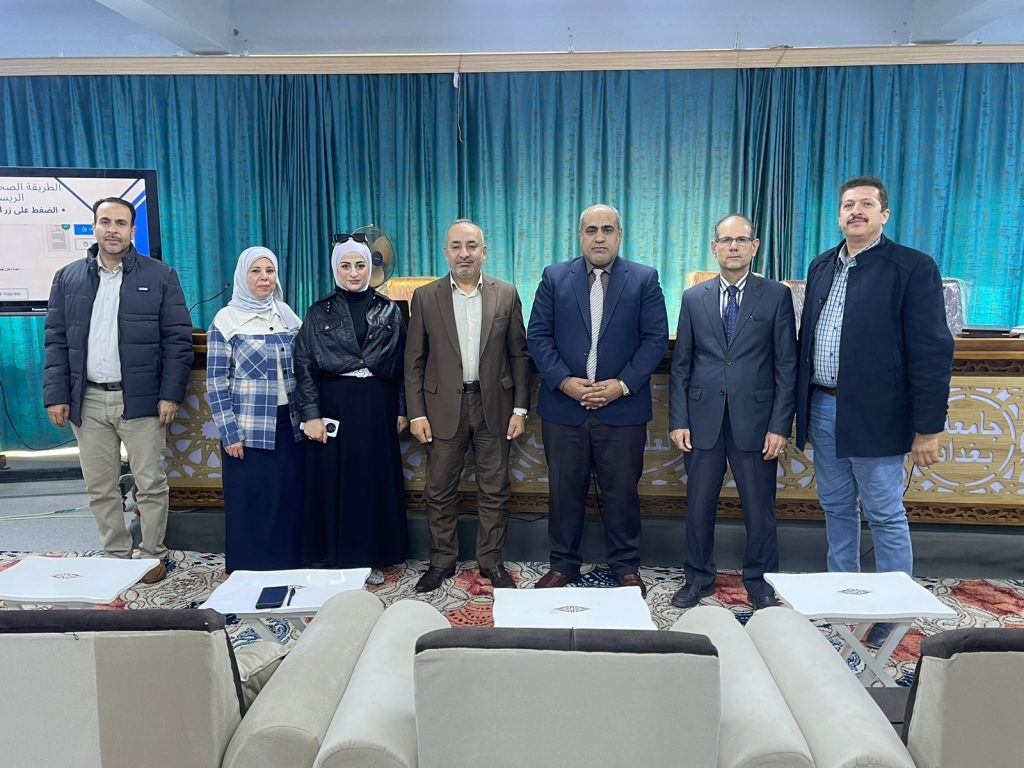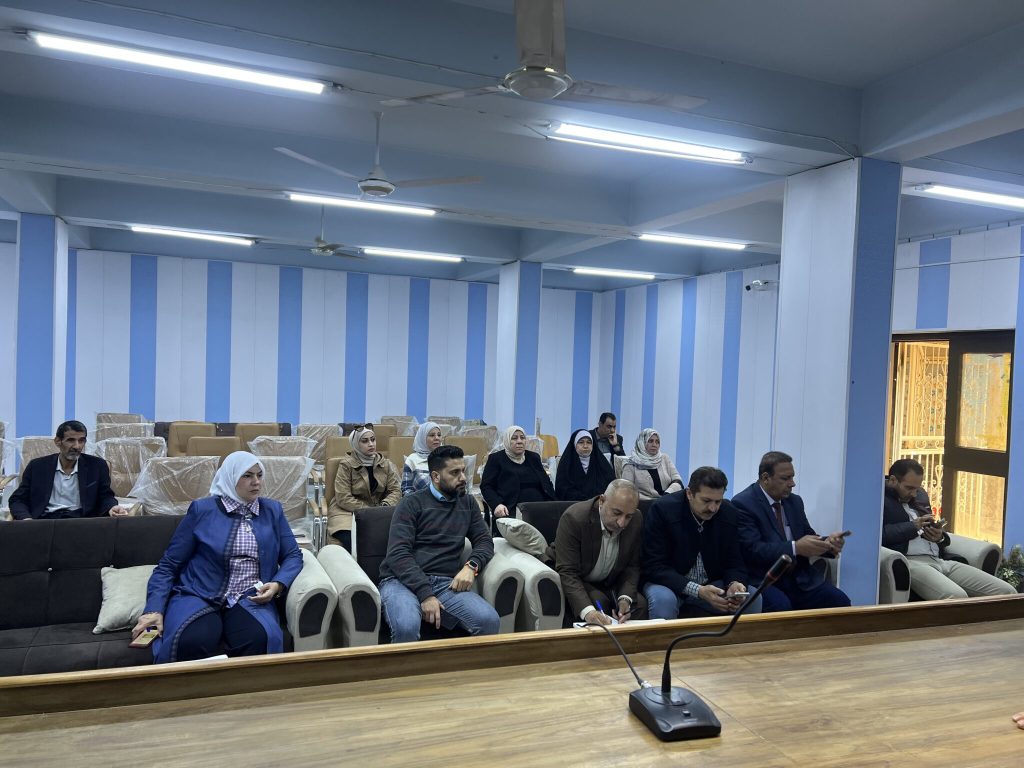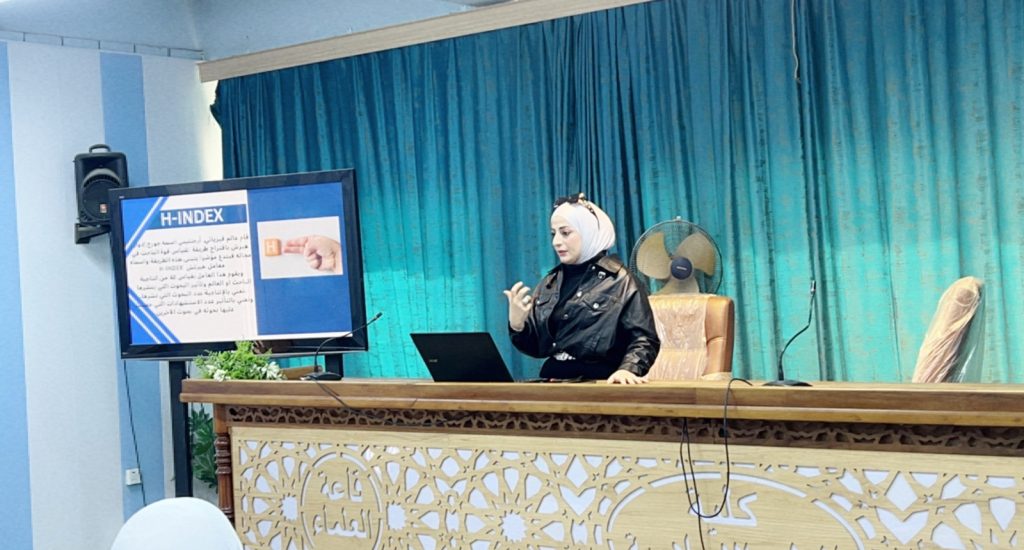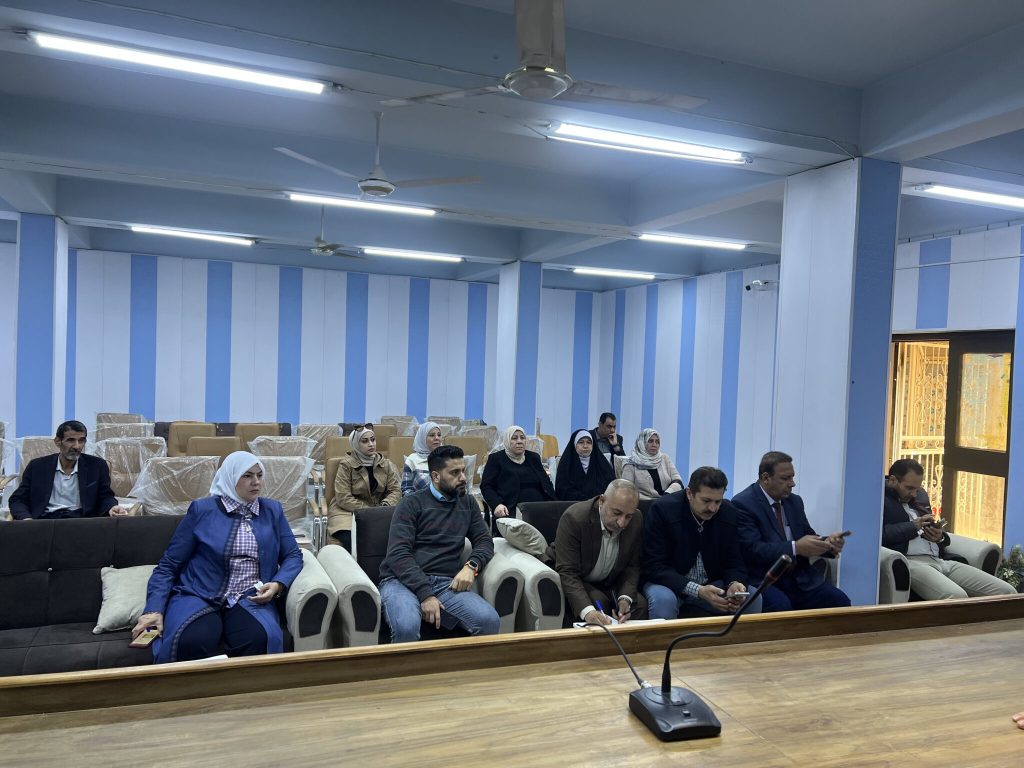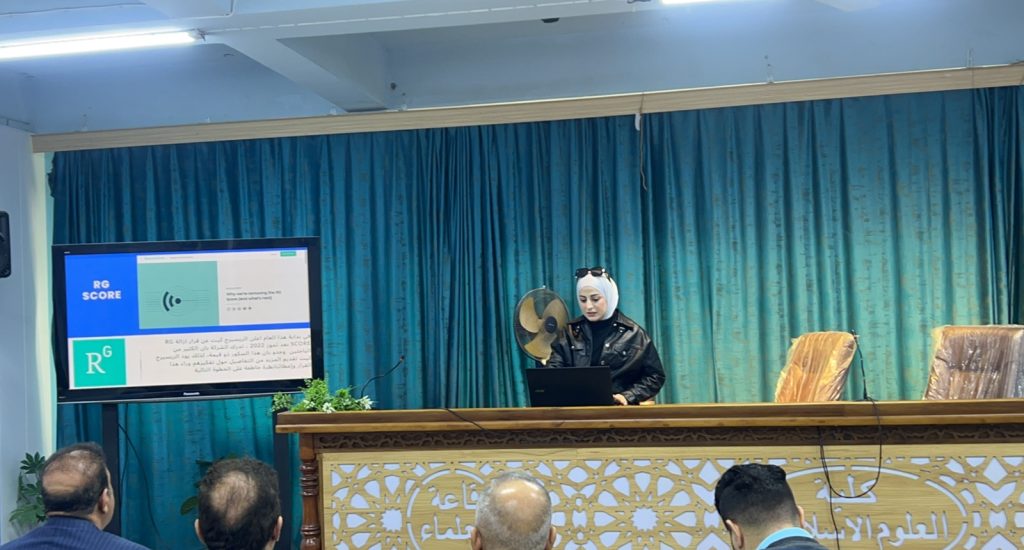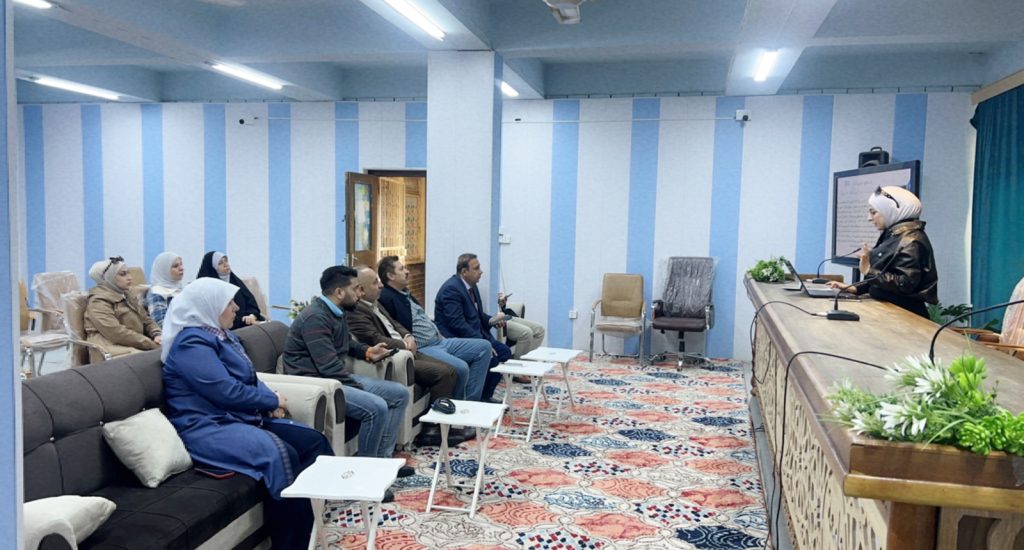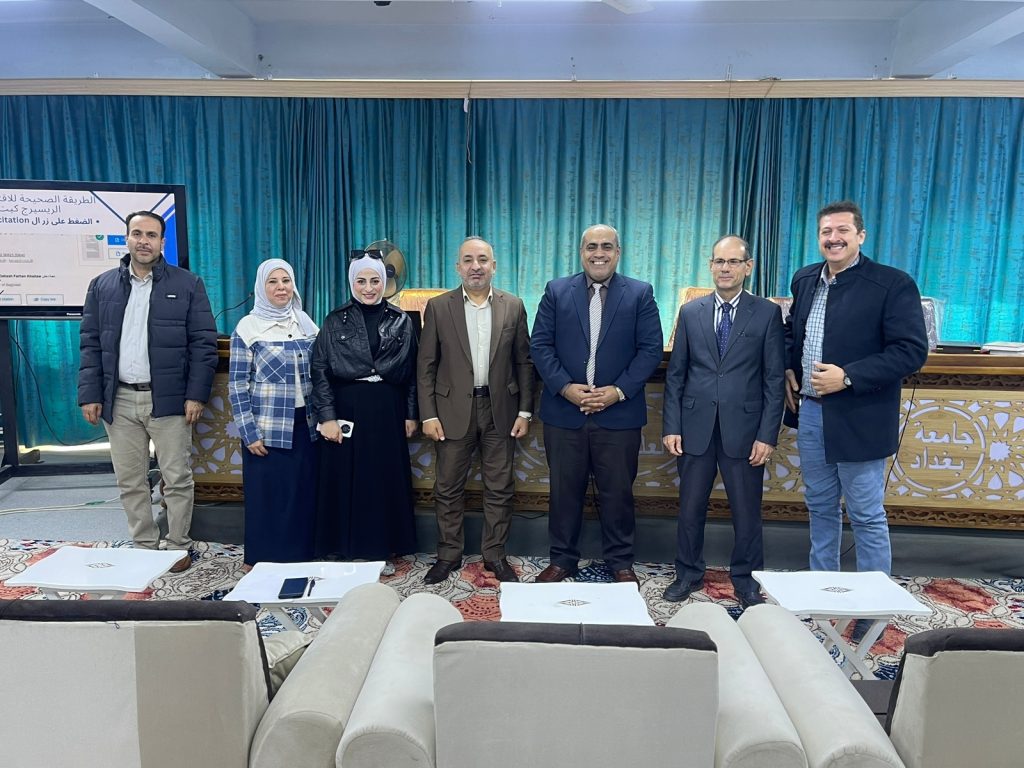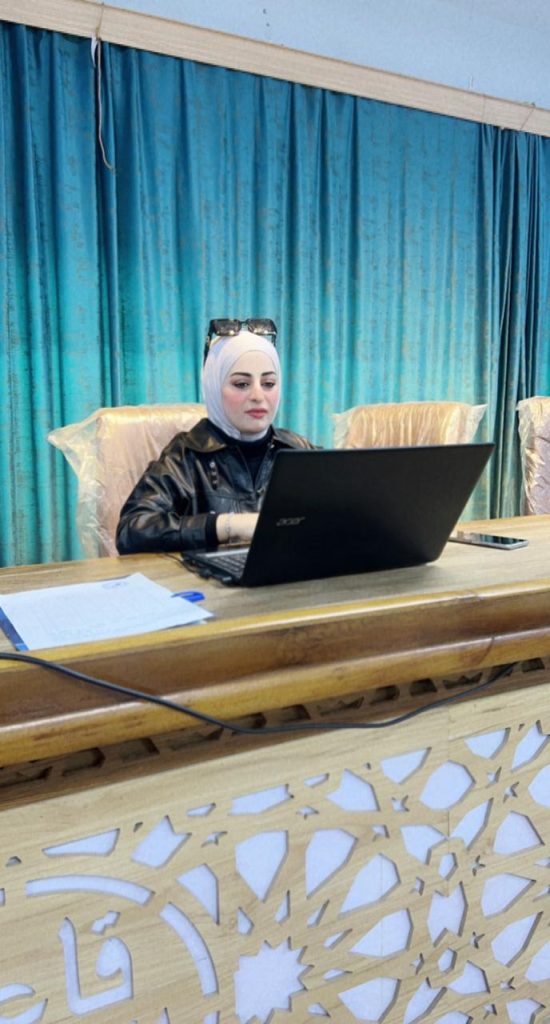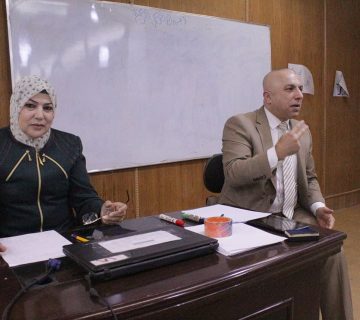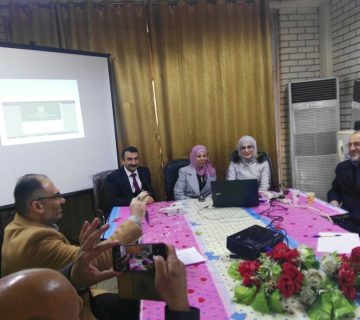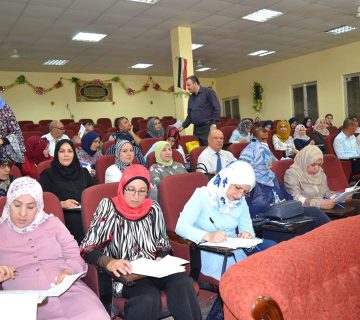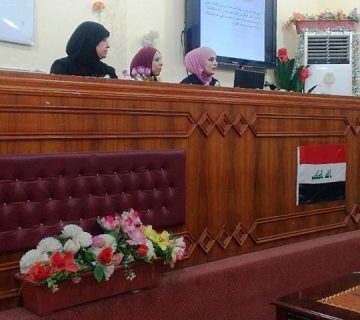The Ibn Sina Unit at the College of Islamic Sciences, University of Baghdad, in collaboration with the Continuing Education Department, organized a workshop on the Research Gate platform. The workshop was led by Senior Engineer Muntaha Kazem Mousa, the head of the Electronic Website Unit.
The workshop focused on the level of research engagement that the Research Gate platform offers to its registered researchers and the h-index, which measures the impact of a researcher’s publications based on the number of citations each paper receives. The session also explored ways researchers can enhance these metrics, elevate the impact of their research, and increase their influence within the academic community by boosting citation numbers. Additionally, the workshop provided guidance on the correct procedures to follow when registering or uploading research to platforms that offer an h-index, ensuring accurate citations and thus increasing the research’s impact factor.
Mousa pointed out that Research Gate is an academic social networking site similar to Facebook, but specifically for professionals in scientific research. It encompasses a wide range of academic disciplines and is recognized as a web-based social network and free collaboration tool for researchers across all scientific fields. She added that the platform aims to foster collaboration among researchers worldwide in various disciplines. Researchers can register, add their research papers, presentations, articles, conference materials, projects, and other academic content. The platform also facilitates connecting with researchers globally and exchanging academic expertise, particularly as the number of researchers and users has surged to over three million worldwide. Currently, there is a growing institutional trend towards registering on this platform, as it has become a hub for scientists and academics, with many academic rankings now considering the number of registered users on this platform as an indicator of an academic institution’s prestige.
The workshop was attended by Professor Dr. Neama Dahesh Farhan, Dean of the College, who closely monitored the academic environment and contributed valuable insights that enriched the workshop
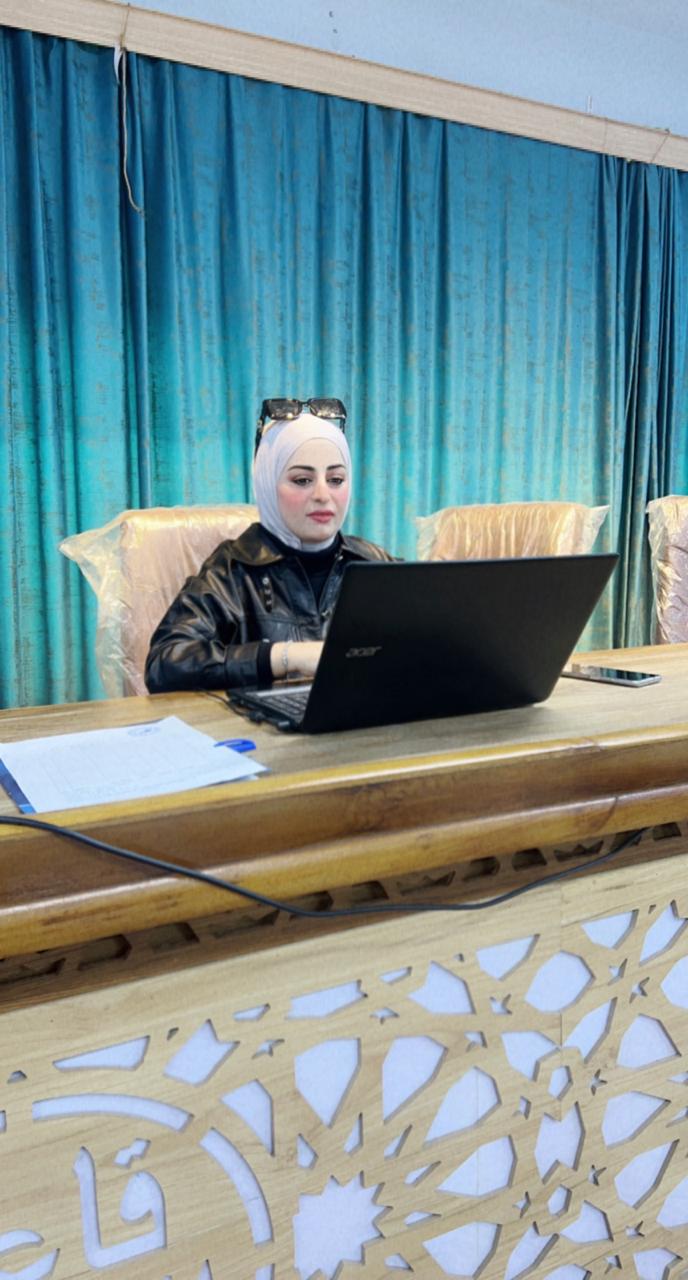
Comments are disabled.


